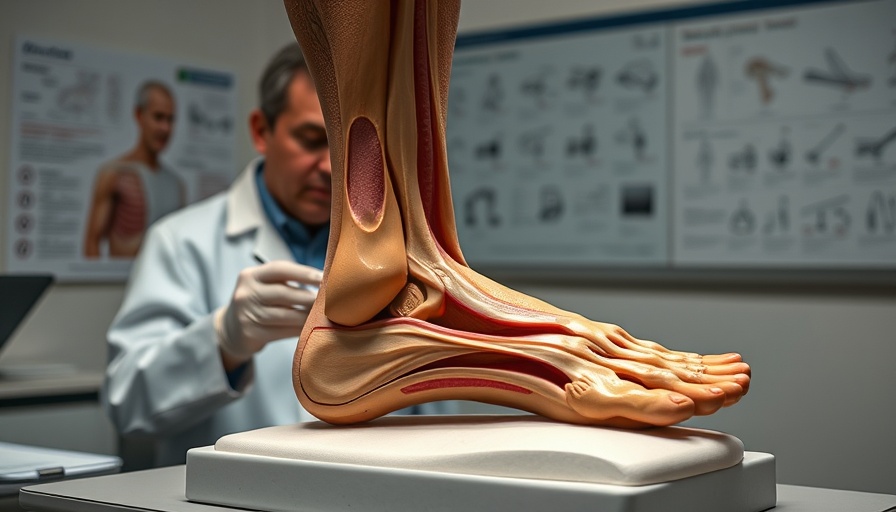
The Importance of Understanding Achilles Surgery
Surgery on the Achilles tendon may seem daunting, especially for those interested in maintaining their health and well-being. This critical procedure is performed to address issues like Achilles tendonitis and tears, which can cause significant discomfort and limit mobility. Understanding the intricacies of this surgery can offer patients peace of mind and empower them to make informed decisions about their foot health.
In Doctor explains Achilles surgery, the discussion dives into the process and recovery associated with Achilles tendon issues, prompting us to further explore its significance in maintaining overall foot health.
How is Achilles Surgery Performed?
In the video titled Doctor explains Achilles surgery, the surgical process is broken down into manageable steps. The surgeon first prepares the area by removing bone to expose a healthy base for healing. Then, they drill holes for anchors that will secure suture tape, which is instrumental in repairing the tendon. This technique is similar to lacing shoes, making it easier for patients to visualize how their healing process will unfold. Once everything is securely in place, the tendon is connected to the calcaneus bone, paving the way for recovery. This simplified approach can be reassuring for individuals concerned about undergoing such a procedure.
Recovery and Rehabilitation Insights
Recovery from Achilles surgery can be prolonged, often involving several weeks in a boot or cast. It's important to understand the recovery timeline and the steps involved to prepare effectively. Following surgery, physical therapy patients usually engage in exercises tailored to enhance flexibility, strength, and mobility in the affected foot. Programs may include plantar fasciitis exercises, ankle sprain recovery techniques, and heel pain remedies to support the healing process and prevent future injuries.
Am I a Candidate for Achilles Surgery?
Individuals suffering from chronic foot pain or persistent Achilles issues might wonder if surgery is the right route. A consultation with a podiatrist can provide crucial insights into treatment options. For some, conservative measures like rest, orthotics, and physical therapy may prove sufficient, while others may require surgical intervention. Knowing the signs and symptoms that indicate the need for surgery can help patients to take action promptly, improving their chances of a successful recovery.
Other Foot Health Considerations
Maintaining foot health goes beyond just addressing Achilles tendon issues. Comprehensive care includes being aware of other common foot problems such as bunions, diabetic foot care, and toenail fungus. It’s beneficial to seek advice on custom orthotics, proper footwear, and preventive strategies. Ensuring regular foot check-ups and listening to your body can prevent complications down the line.
Conclusion: Your Health Journey Matters
Understanding the process of Achilles surgery and recovery can empower you to take control of your health. If you're experiencing foot pain, consider reaching out to a local podiatrist for guidance tailored to your needs. In doing so, you can explore your options and make decisions that suit your lifestyle. Remember, your journey toward recovery is unique, and being well-informed can lead to the best outcomes.
 Add Row
Add Row  Add
Add 




Write A Comment